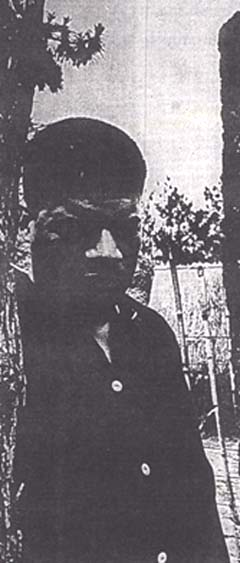 Jackson, James E. Jr. (August 1968). "18 Months As a Prisoner of the Viet Cong."
Ebony, 23(10), p. 114-119.
Jackson, James E. Jr. (August 1968). "18 Months As a Prisoner of the Viet Cong."
Ebony, 23(10), p. 114-119.
Insert abstract here....
It is hard to tell whether I would have received better treatment from the Viet Cong if
I had cooperated with them during interrogation. It has been proven that if you cooperate
and give them something they are after, they want that much more the next time.
One thing that was constantly slapped in my face was the race situation in the United States.
It was initially used to win me over without applying any of the other more drastic methods
they had. They tried the nice way first. They definitely tried to make me feel that my
race would put me in line for special privileges; but I could readily see that they were
only making promises. All I had to do was look around me and see in what miserable shape
the other Negro prisoners were in. First of all, they wanted to know why the American
Negro wanted to come to Vietnam; why did he allow himself to be sent to Vietnam? They
would ask me whether it is true that Negroes in America don't go to school, whether all
Negroes are poor. Some wanted to know whether there were any Negro officers in the
United States Army. You'd be surprised at how many people I ran into over there who
told me that there were no Negro officers in the U.S. Army. These were people who were
supposed to be well-informed.
They even went so far as to remind me that black leaders — like Malcolm X —
were being assassinated back home. They told me that Negroes were getting machine-gunned
in the streets of America and that Newark and all those places had blown up. In addition
to all this, they had me listen to Radio Hanoi and another clandestine guerrilla radio
station in the south. So I heard constant news about all the "black revolutions"
happening in the United States. I knew that there was unrest and I knew that there
was trouble, but as far as Negroes being machine-gunned in the streets and my family
being in terrible trouble back home was concerned, all this I knew wasn't true. The
whole thing was blown so far out of proportion as it was presented to me. I just had
to write it off as being untrue.
At one time I listened to a broadcast made by Stokely Carmichael. I think it was made
while he was visiting Hanoi. It was beamed from there to the Negro Soldier in South
Vietnam. His whole line was: Why are you here fighting? You should be back in solidarity
with the, I think it was the Afro-Asian Solidarity Conference, or something to that effect
they were having there. Representatives of Bertrand Russell's "War Crimes
Committee" were in Hanoi at the same time to investigate alleged U.S. atrocities
in Vietnam. They later used their findings in the "war criminals trial" in
Europe of President Johnson and (former Sect. of Defense Robert) McNamara and all
these people.
I also listened to recordings that, I assume, had been recorded in the United States
by Negro groups and sent to both South and North Vietnam. They were aired in
15-minute broadcasts over the radio. I won't say that they didn't make me and some of
the other Negro prisoners think, but I don't think that they had much of a demoralizing
effect on us. If a prisoner was to be demoralized, many things contributed to it rather
than just listening to a radio broadcast.

|

